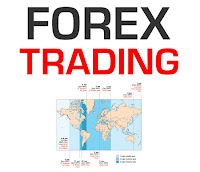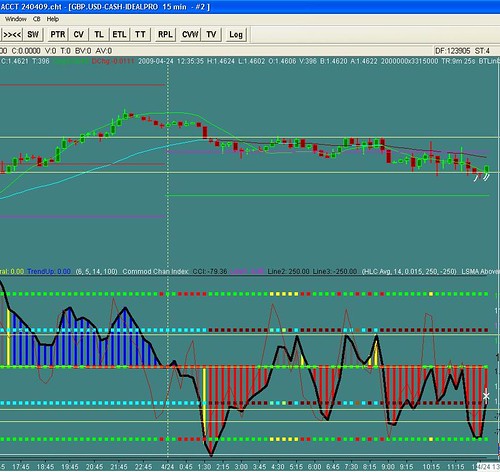I think I had better start off by clarifying that there really are no “secrets” to trading in the forex market, but there are certain things that successful traders do that unsuccessful traders do not do – and vice versa.It seems to be a well established fact that 95% of all the people that trade the forex lose some or all of their investment while a small percentage of traders make a very handsome return. Why is this?
If we were able to make a detailed study of every successful trader, we would find that there is a common thread that runs through these people. The details that we could take from this thread could be considered to be the five secrets of successful forex trading.So here is the first “secret”. Successful Forex Traders love to trade. They love everything about trading. They love the studying, the planning, the scheming, the waiting, the anticipation, the execution, the result, the atmosphere and of course they love making lots of money.
These traders talk, eat, sleep and dream trading. It is not a job. It is a way of life. They DO NOT do it just for the money!In my forex trading business, one very common question that I am asked is “how do you overcome the boredom of being stuck in front of your PC all day?”.The answer is of course that I do not find it boring. I love trading and if I didn’t, I would find a different way to make a living.
The next “secret” is emotional control. Successful traders have learned the ability to trade without emotion. This does not mean that they do not care about the outcome of their trade, quite the opposite. Successful traders always trade to win, but they do not let their emotions play a part in the process. They just look at the cold hard facts and then either trade or wait. Successful traders also accept that there will be both winning and losing trades and they treat both with the same lack of emotion.The next “secret” is to have a system. Now it really does not matter what system you use so long as it produces more and bigger winning trades than losing ones. This is referred to in trading circles as “an edge”. If you do not have an edge, then I highly recommend that you consider the trading system that I co-developed called The Amazing Stealth Forex Trading System.
The penultimate “secret” is to be disciplined. This means having the self discipline to STICK TO THE PLAN. There is a great maxim in trading. Plan the trade and trade the plan. If you have a winning system, make sure that you have the discipline to stick to the rules exactly.
The final “secret” is to have enough money to trade safely. In many ways this should be RULE NUMBER ONE. More people fail to make money when trading on the forex through insufficient trading capital than for any other single reason.
When trading it is vital to adhere to strict money management and capital conservation techniques. Money management must be an integral part of any good trading system, and of course you should never trade with money that if lost would cause you or your family financial difficulty.If you can take onboard and learn these not so secret “secrets”, there is no reason why you should not be able to join the ranks of successful forex traders.
If we were able to make a detailed study of every successful trader, we would find that there is a common thread that runs through these people. The details that we could take from this thread could be considered to be the five secrets of successful forex trading.So here is the first “secret”. Successful Forex Traders love to trade. They love everything about trading. They love the studying, the planning, the scheming, the waiting, the anticipation, the execution, the result, the atmosphere and of course they love making lots of money.
These traders talk, eat, sleep and dream trading. It is not a job. It is a way of life. They DO NOT do it just for the money!In my forex trading business, one very common question that I am asked is “how do you overcome the boredom of being stuck in front of your PC all day?”.The answer is of course that I do not find it boring. I love trading and if I didn’t, I would find a different way to make a living.
The next “secret” is emotional control. Successful traders have learned the ability to trade without emotion. This does not mean that they do not care about the outcome of their trade, quite the opposite. Successful traders always trade to win, but they do not let their emotions play a part in the process. They just look at the cold hard facts and then either trade or wait. Successful traders also accept that there will be both winning and losing trades and they treat both with the same lack of emotion.The next “secret” is to have a system. Now it really does not matter what system you use so long as it produces more and bigger winning trades than losing ones. This is referred to in trading circles as “an edge”. If you do not have an edge, then I highly recommend that you consider the trading system that I co-developed called The Amazing Stealth Forex Trading System.
The penultimate “secret” is to be disciplined. This means having the self discipline to STICK TO THE PLAN. There is a great maxim in trading. Plan the trade and trade the plan. If you have a winning system, make sure that you have the discipline to stick to the rules exactly.
The final “secret” is to have enough money to trade safely. In many ways this should be RULE NUMBER ONE. More people fail to make money when trading on the forex through insufficient trading capital than for any other single reason.
When trading it is vital to adhere to strict money management and capital conservation techniques. Money management must be an integral part of any good trading system, and of course you should never trade with money that if lost would cause you or your family financial difficulty.If you can take onboard and learn these not so secret “secrets”, there is no reason why you should not be able to join the ranks of successful forex traders.









